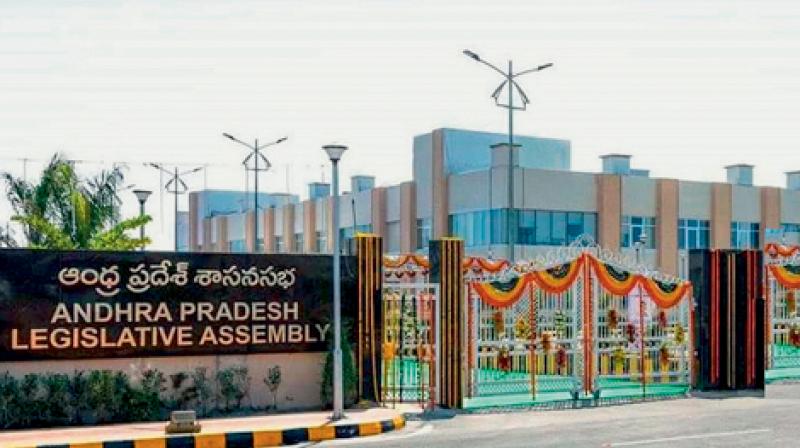Since they do not have income in India, the cost of the property which they buy do not match with the income disclosed as the only income normally disclosed in Indian Tax Return is the Interest on NRO account and other such investment
For the past two decades, many of the NRIs and OCI Card holders are buying residential properties in India. Government of India and its agencies are also going overboard in inviting such persons to invest in the property in India. However, there is cache, since they do not have income in India, the cost of the property which they buy do not match with the income disclosed as the only income normally disclosed in Indian Tax Return is the Interest on NRO account and other such investment. The source of the funds to purchase the property is normally funds transferred from their accounts in the country where they are gainfully employed.
This Article discusses issues and cautionary points to be taken care of by such investors.
Notices which can be issued by the Income Tax Office on investment made from NRE accounts to buy property:
Section 143(3)/142 where the assessee has filed the return of income and notice is issued before the end of the Assessment year in which the return was filed.
Section 148/148A after the end of assessment year, whether the assessee has filed the return of income has reason to believe that the income of the assessee has escaped assessment. This sort of notice in these cases are issued because the income tax return filed by these Non-resident asssessees normally has only the interest income from NRO account which do not match with investment in the house property.
WHAT ARE THE SECTIONS 148/148A
These sections cover the opening of the assessment of previous years whether the assessee has filed the return of income tax for those years or not. They normally start with asking the assessee to file a return of income, even if he has filed it earlier and then challenging the income declared with the volume of investment made. A very normal letter of enquiry, in its simplest form, may look like:
“You have disclosed an income of Rs.26,000 in your return of income whereas you have made an investment of Rs.15,000,000 in property as per the information available with the Income Tax Office. Show cause why the amount of Rs.15,000,000 should not be treated as an undisclosed income of yours in the Assessment year and taxed accordingly.”
OR
“Explain the source of each inward remittance with documentary evidence. If inward remittances are from your own offshore account, provide copy of the same. And if funds have been received from some other persons, provide details of such transaction with cop of agreement through which such funds have been received.”
CAUTIONARY POINTS TO BE TAKEN CARE BY THE NRI/OCI
- When you apply for the Permanent Account Number (PAN) with the Income Tax department, normally you might engage a professional or take help from a relative or friend. Take Care of the following:
- Your application must mention that you are “Non-resident”;
- Your citizenship must be correctly mentioned;
- The PAN form asks for the sources of income, there you should mention “Income from other sources.”
- Once PAN is allotted, update your profile by updating your bank details, and ensuring that the nature of account should be mentioned as applicable. For example, “NRO” and “NRE” accounts should be mentioned as such and not as “Savings”.
- Ensure that email mentioned is yours and not of professional so that you can keep tab on all mails received by you. Must keep checking Spam time to time also.
- If you are mentioning an Indian phone number, ensure that the number continues to be in service. At times, such number is the number used by a relative or friend who stays in India. Keep in touch with him/her and ask about messages from tax department.
- When you file the income tax return, take care of the following:
- Even if the return is being filed by a professional, ask them to supply a copy of form 26AS, AIS and TIS to you for your records. These are the data collected about you by the Big data of Tax department.
- Ensure that all your income as per these forms are disclosed in the ITR.
- Check that you are mentioned as “non-resident” in the residential status.
- Do not file ITR 1 in any case. If you are not having any income from business and profession, then do file ITR2 only.
- Mention all your bank accounts with correct nature of account.
- If you have purchased a property:
- There is no mention in the Return if Income of any purchase of property, so it goes like that.
- That you need to be prepared with all documents to be kept in safe custody, physical as also PDF soft copies relating such purchases. To itemize a few:
*The purchase deeds
*The receipts obtained from the builder/seller
*In the case of loan obtained, then full document of the loan including loan agreement, repayment schedule, bank account details for the period lapsed, any other document which you might have in possession with respect to the loan.
* You might have deposited the TDS at the time of purchase, keep that challan and copy of form 26QB generated from the system.
* Keep a detailed copy of all payments made by you in respect of the property mentioning the sources from where the funds were sourced.
* Keep a legible copy of the bank accounts with you. Take care to copy all bank accounts, NRO/NRE from where you might have paid to the seller, any other account in India which you might be maintaining, foreign bank statement from where the transfers were made to the NRO/NRE account.
* Keep legible copy of the bank accounts from which the transfers to Indian NRE accounts were made and keep notes for such transfers. If there are deposits to the bank accounts just before the remittances, then it is better to keep notes about the nature of the receipts in those accounts, like ‘salary’; “Encashment of Deposits”, & C.
* Copy of your return of taxes filed in the foreign country should also be preserved safely, as it can show that your income in foreign country is sufficient to accumulate the funds which you have invested in India.
* Take care that your remittances to India should not be immediately preceded by cash deposit in your foreign accounts as in that case the Assessing Officer may accuse you of money laundering.
- Tools employed by the Assessing Officers
- Section 69-Unexplained investment; 69A-Unexplained money; 69B-Amount of investments, etc., not fully disclosed in books of account, 69C-Unexplained expenditure etc. are the normal tools resorted to by the officers and they are quick to quick to conclude that the Assessee do not possess sufficient proof of the investment.
- At times, they sit on the judgement on loans procured by the Assessee in the adopted county and therefore, you need to be cautious enough if you are taking a loan in foreign country and then transferring that amount to your NRE account for the purpose of investment in the property.
- Also take care that you should always transfer funds from your own foreign accounts to your NRE/NRO accounts and not get a direct remittance from any other foreigner to your NRE/NRO account.
- If there has been any direct transfer to your NRE account from a third party, (even if your family member), take copy of their bank statement at the point they have transferred the amount, take a declaration about the nature of the transfer- gift, loan or otherwise, and take the proof of their identification.
- The credits in the NRE accounts are not beyond scrutiny and therefore, you should be able to explain the source of the credits to NRE account.
*************************
The allure of investing in property in India for NRIs and OCI Card holders comes with its own set of challenges and potential tax implications
From ensuring accurate PAN registration to meticulous record-keeping of financial transactions and property purchases, proactive measures can mitigate the risk of facing scrutiny from the Income Tax Office
Timely and comprehensive responses to notices, along with maintaining transparency in financial disclosures, can bolster the investor’s position in the event of an inquiry
Ultimately, by staying informed, diligent, and proactive, NRIs and OCI Card holders can safeguard their investments and enjoy the benefits of property ownership in India without undue tax-related hurdles
*************************
- What you should do on receipt of notice:
- Reply on or before the due date. If they have mentioned number of days, like ’15 days of the date of this letter’, then better include the day of the sending the notice and count 14 days only. If the notice mentions another date, like ‘reply on or before 9th February’, and not time is mentioned, then it is midnight India, else if a time is mentioned like ‘9th February 2024 11:58’, then follow the time (IST) and file the reply before that minute.
- Consult a tax practitioner, or if you are confident enough of your reply, file yourself, but do not assume that the officer will read your reply and apply common sense over and above that, means, things which are obvious for you may not be obvious for the reader, therefore, submit all documents, explain all points, even at the cost of repetitions, even a question appears to be sans logic, you have to answer it.
- What can go against you:
- If the Assessing officer is not satisfied, then he may proceed to treat your investment fully or a part of it as your undisclosed income for the year and levy tax, interest and penalty on the same.
- He is likely to iterate that the credits to NRE accounts need to be explained satisfactorily and he can take the stand that it is not explained satisfactorily.
- If you lack in presentation of documents, take advance precautionary measures.
- What can go in favour of you
- If you can produce all bank accounts, foreign as also local of the year concerned and your bank entries are well explained then you need not worry.
- If you have done any such transaction in the past (say up to 10 years), then you must look back at your record keeping and if any record is missing, take step to collect the same.
- Keep copies of all passports with you even if they expired. The officer can go to the extent of verifying number of days you spent in India and therefore will ask for all pages of passport which you held in the year of purchase as also in the four years prior to the transaction.
- Log in to your PAN in the Income tax portal, check your profile, update if necessary, and also keep checking the notices issued by the office.
The allure of investing in property in India for NRIs and OCI Card holders comes with its own set of challenges and potential tax implications. As highlighted in this article, navigating the tax landscape requires careful attention to detail and adherence to legal requirements. From ensuring accurate PAN registration to meticulous record-keeping of financial transactions and property purchases, proactive measures can mitigate the risk of facing scrutiny from the Income Tax Office. Moreover, timely and comprehensive responses to notices, along with maintaining transparency in financial disclosures, can bolster the investor’s position in the event of an inquiry. Ultimately, by staying informed, diligent, and proactive, NRIs and OCI Card holders can safeguard their investments and enjoy the benefits of property ownership in India without undue tax-related hurdles.
***********************************************************************
Readers








